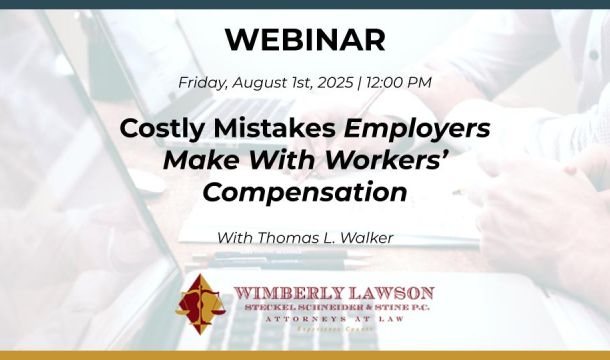The EEOC Is Not Backing Off From Its Position on Leave As A Reasonable Accommodation
What does an employer do when an employee with a chronic health condition uses up all of her FMLA leave and accrued vacation time but still needs time off for medical treatment? During the Obama administration, the EEOC aggressively took the position that employers should not deny or unlawfully restrict the use of leave, including unpaid leave, as a reasonable accommodation to a worker's disability under the Americans with Disabilities Act. The EEOC even filed lawsuits against employers that unceremoniously terminated employees who had exhausted all of their leave but needed additional leave to deal with serious medical issues.
Many wondered if this policy would change or be scaled back under a Trump administration. From the looks of a lawsuit filed by the EEOC this week, maybe not. On July 6, 2017, the EEOC filed a lawsuit against Time Warner Cable Inc. and Charter Communications Inc. in a California federal district court. (EEOC v. Time Warner Cable Inc., C.D. Cal., No. 17-01355, complaint filed 7/6/17). In the Complaint, the EEOC alleges that Time Warner Cable and Charter Communications violated federal law when they failed to provide additional unpaid leave to a worker seeking treatment for a disability. "This case should serve as a reminder to employers that it is their responsibility to provide reasonable accommodations to employees under the law," Rosa Viramontes, the EEOC's Los Angeles District director, said in a July 6 statement.
Pro tip: If an employee with a "disability" (as defined by the ADA) requests an accommodation at work, or the need for an accommodation is obvious, the employer must engage in an interactive process with the employee to determine what, if any, accommodation is reasonable for both sides. Employers can demonstrate a good-faith attempt to accommodate by meeting with the employee, requesting information about the limitations, considering the employee's requests, and discussing alternatives if a request is burdensome. The EEOC has made it clear that it expects employers to at least consider leave as a form of employee accommodation.

Kathleen J. Jennings is a former principal in the Atlanta office of Wimberly, Lawson, Steckel, Schneider, & Stine, P.C. She defends employers in employment matters, such as sexual harassment, discrimination, Wage and Hour, OSHA, restrictive covenants, and other employment litigation and provides training and counseling to employers in employment matters.
Related Content
Get Email Updates
Recent Content

How to Audit Employment Discrimination Laws Compliance

TPS Update (As of 6/17/2025)

TPS Designation for Honduras and Nicaragua Automatically Extended, But the Date is Uncertain

President Trump Discourages Criminal Enforcement of Agency Rules

Supreme Court Suggests Trump Can Fire Agency Heads without Cause
